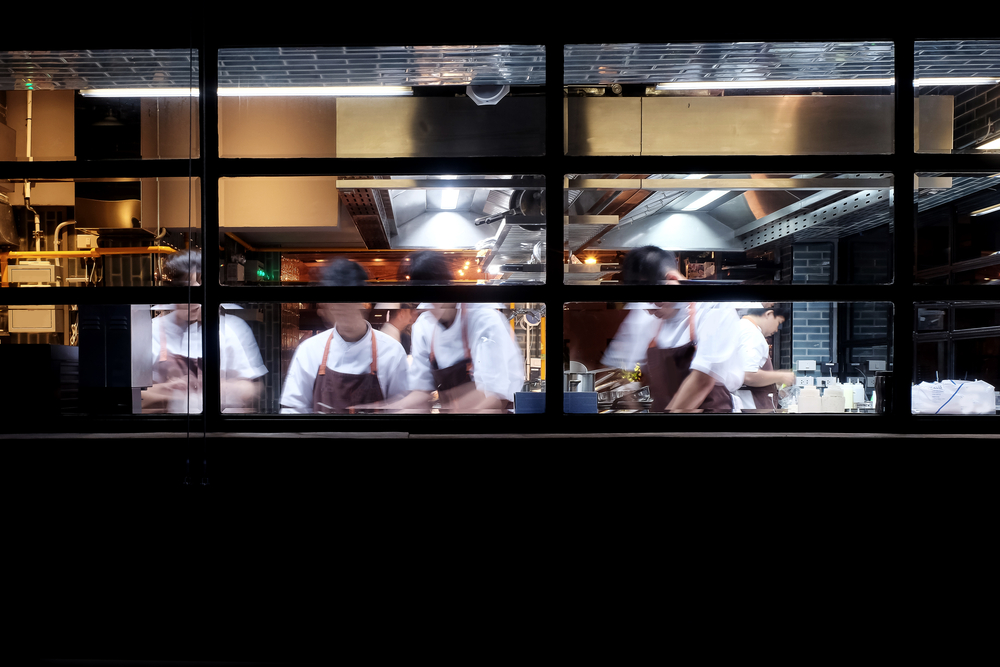11 Important Lessons for Future Star Cooks
While being a cook might seem like a creative and enjoyable career from the outside, many cooks in training soon become frustrated with the working hours, working conditions, and many other areas of the job. For those who are reading this as they stand before a fork in the road (‘do I continue OR do I pull away before it’s too late’), we assure you there’s good times still to come.
For many chefs, they’re tough on their staff (as well as themselves) because they HAVE to be tough. Whatever your definition of success, it will never be an easy journey and many at the top of their field will tell you the same. However, as long as you consider your goals and create a strategy that builds towards these goals, there’s no reason why success won’t be in your future.
Of course, chefs are made in many different ways; some choose to go through a culinary arts degree and others work their way up from the bottom without a formal qualification. Whichever you choose, there will be hard times ahead but it’s important to always remember the future. Too frequently, people sacrifice their long-term goals for short-term comfort. If you’re willing to build for the future, you’ll need these 11 lessons for success!
1. Always Give Your Best
If you’re willing to give your best every single day, you won’t be sitting at home with regrets; every single dollar in your pocket will be earned. Every single plate that leaves the kitchen should be fit for royalty; there are NO exceptions to this. The minute your standards slip, the downward slope begins.
While on this note, we also suggest being a team player. If you’re finished for the evening but the person on the dishwasher is still snowed under, lend them a helping hand. Wherever your attention is required, always try your best.
2. Be Patient
If goals are hard to reach, it means they’re worthwhile. As long as you’re making progress, the experience you build on the way to your goals will be pivotal; this means all kitchen experience, regardless of position. Even if you have a degree behind you, be ready to wait a number of years before you finally get a chef position. As long as you have a plan and are constantly working towards that plan, you’ll know that the sous chef/chef position will eventually be yours. The more experience you get on the way, the more rounded you’ll be at the end.
3. Keep the Hunger
One of the biggest mistakes that cooks make when at the bottom of the ladder? Giving up. Along with the patience we’ve already discussed, you should also be hungry to learn all skills. If the restaurant is having a marketing meeting, ask to sit in. If the chef is doing the ordering, ask if you can help. If the chef is working out pricing for a new menu, ask if you can watch or just ask questions. Not only will you gain important knowledge, you’ll impress those above you; soon enough, whenever a learning opportunity arises, they’ll come looking for you.
‘What if the chefs aren’t doing any of these things?’. Make opportunities for yourself – ask to research potential new dishes for the menu and show a genuine interest in the restaurant.
4. Go Above and Beyond to Learn
When approaching new tasks, see them as an opportunity to learn. With every day, try to learn one new thing; if you have to, write notes and make sure you don’t forget what those with experience are teaching.
5. Make the Extra Hours Count
Remember, there are plenty of opportunities to learn away from your shift. Just because your shift has come to an end, it doesn’t mean your learning has to do the same. If you really want to learn, research regional competitions, visit other restaurants, read books and useful websites (like this one!), get involved with the American Culinary Federation and other professional organizations, and COOK. Those who continue their learning outside of work hours will climb the ladder faster than those who don’t.
6. Always Get Answers to Your Questions
Why is French onion soup better when the onions are caramelized? How do I present this dish on the plate? When braising, why does meat always get tougher first? Do I really have to temper a block of ice in the cooler before carving it? Why do food temperatures have to be checked throughout the cooking process? How do I make sure the chicken is prepared properly?
Often, learning the ‘how’ isn’t enough because it doesn’t allow you to adapt to different scenarios. By learning the ‘why’, you’ll be in the best position to understand and pass this knowledge on when the time comes.
7. Compare Only with You
While competing with colleagues and other cooks can sometimes be helpful for motivation, it can also be incredibly harmful. In the long-term, the only useful competition should be with yourself. With every day that passes, you should be a better cook than the day before. Rather than waiting for somebody to push you forward, take a proactive approach.
8. Chefs Say ‘Yes’
Since chefs are under huge amounts of pressure to deliver positive results for owners and shareholders, they’ll try their hardest to say ‘yes’ to all requests. If the answer is a ‘no’, you’ll know that they considered the kitchen’s ability to meet the request before then deciding it wasn’t possible. With this in mind, we recommend saying ‘yes’ as frequently as possible (as long as you remain sensible!).
9. Build Your Own Philosophy
Learning to become a chef can be a fantastic journey, so be open to philosophies. There are many variables in cooking, leading a team, and general management, so watch your head chef and decide whether you agree or disagree with facets of their working habits and management. At times, you’ll need to compromise and, at other times, you’ll feel so passionately about something that you’ll want to put your foot down. Over time, work out where you want to work and for whom you want to work too.
10. Be Self-Critical
As well as being your own competition, you should also be your own critic. Keep asking yourself whether you can do better; if you say ‘no’, think again because even the best chefs in the world look for opportunities to become a stronger cook.
11. Always Stay Humble
The very best chefs know how hard it is to rise from the bottom of the ladder to the top; let’s face it, most of them have done it themselves. Additionally, they always remember who helped them climb while understanding the responsibility on their shoulders to help others. Although they can get passionate and even angry at times, their decisions will always contribute to the good of the team, customer, or restaurant.
Summary
With these eleven lessons, and self-confidence (never forget this!), the role of chef will be available to you. Keep working hard, keep learning, and keep improving!


